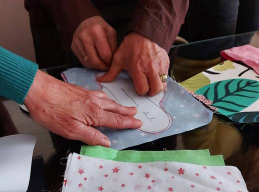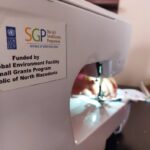
Description of the project: In North Macedonia, 90% of girls in rural areas and 75% in cities miss school 2–5 days/month due to excessive cost of menstruation products and inadequate sanitation facilities. To tackle menstrual poverty, JHR Skopje trained 5,000 women from rural poor communities to create their social enterprise to manufacture and sell environmentally safe, reusable menstrual pads. This has cut down by 10% the plastic use for menstrual hygiene (6 million plastic parts discarded/month result in heavy emissions and pollution). The organisation has led national information and advocacy campaigns demanding tax cuts on menstruation products and decent sanitation facilities in public schools and universities.






